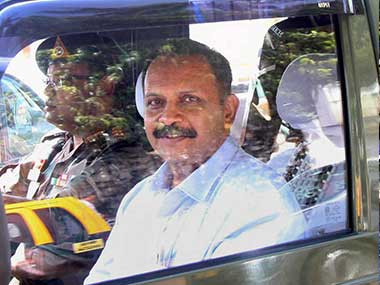Mumbai: The Bombay High Court Monday refused to stay framing of charges by the trial court against Lt Col Prasad Shrikant Purohit and other accused persons in the 2008 Malegaon bomb blast case. A bench of Justices SS Shinde and AS Gadkari, however, agreed to hear the matter on November, a petition filed by Purohit, one of the seven accused in the case, challenging his prosecution under the Unlawful Activities (Prevention) Act (UAPA). [caption id=“attachment_3970607” align=“alignleft” width=“380”] File image of Lieutenant Colonel Shrikant Purohit. PTI[/caption] It directed the National Investigation Agency (NIA) counsel Sandesh Patil to file a reply to Purohit’s plea by 21 November, the next date of hearing. The bench refused Purohit’s request for staying the proceedings in the trial court, noting that in the past, both the Supreme Court and the Bombay High Court had passed orders directing the trial court to expedite the hearing in the case. Framing of charges is a process after which the trial in a criminal case starts. The trial court, the special NIA court in the present case, is scheduled to begin framing of charges against Purohit and other accused on Tuesday. Six persons were killed and over a 100 injured when an explosive device strapped on a motorcycle went off near a mosque in Malegaon, a power loom town located about 200 km from here in North Maharashtra, on 29 September, 2008. Besides Purohit, the other accused case are Pragya Singh Thakur, Major (retd) Ramesh Upadhyay, Sameer Kulkarni, Ajay Rahirkar, Sudhakar Dwivedi and Sudhakar Chaturvedi. The special NIA court had rejected their pleas on the applicability of the anti-terror law against them. On 27 December, 2017 the special NIA court had dismissed the pleas filed by Purohit, Thakur and the others seeking that they be discharged from the case. Discharge is a pre-trial process in a criminal case. At the time, the special court had dropped stringent charges under the Maharashtra Control of Organised Crime Act (MCOCA) against the accused, but had said they will face charges under the UAPA and other sections of the Indian Penal Code (IPC), including murder and criminal conspiracy. Purohit, however, has argued through his counsel Shrikant Shivade that he cannot be prosecuted in the case since the sanction granted by the government to prosecute him was “wrong in law”. A prior government sanction for Purohit’s prosecution was required since he was a serving army officer at the time of his arrest. On 17 January, 2009, such a sanction was issued by the Additional Chief Secretary of the Maharashtra home department. Shivade, however, has maintained that under the UAPA, the state law and judiciary department, which is the sanctioning authority, has to constitute an appropriate authority and seek its report first. In his case, the sanction was given in January 2009, but the authority was appointed only in October 2010, he has argued. “The sanction in Purohit’s case thus, was not valid under the UAPA,” Shivade has maintained.
On 27 December, 2017 the special NIA court had dismissed the pleas filed by Lt Col Purohit, Pragya Singh Thakur and the others seeking that they be discharged from the Malegaon blast case.
Advertisement
End of Article


)

)
)
)
)
)
)
)
)



